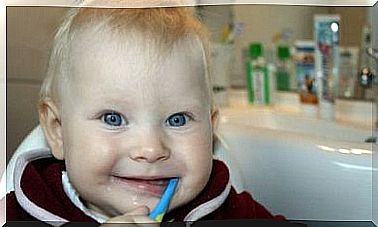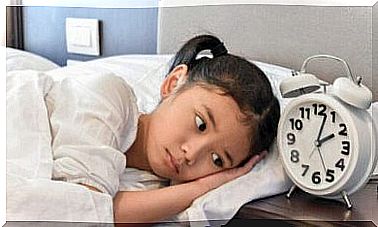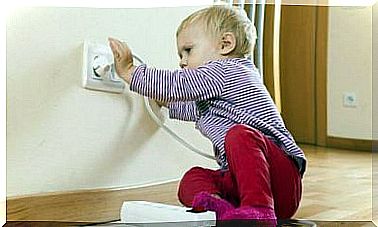Parenting Styles And Their Influence On Personality Development In Children
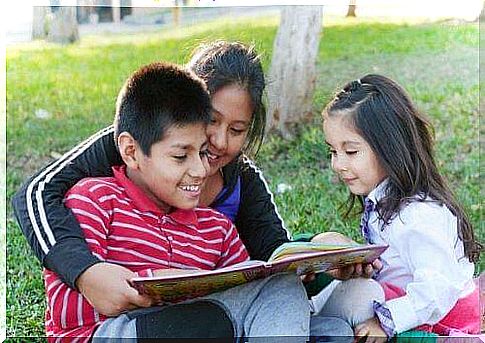
It is well known that parents have a great influence on the personal development of their children through their parenting styles. Social scientists believe that the family is the main actor in socialization.
As a result, parenting style plays a huge role in children’s psychosocial development, which is why the way parents raise their children is very important.
Your parenting style relates to the way in which you meet your children’s needs for orientation and discipline in everyday life. This includes the way you make decisions and resolve household conflicts.
However, to what extent can the way we are brought up affect the personal development of our children? Read on below to learn more about it.
Parenting styles: discipline and affection
The style in which parents raise and teach their children is not just a means of imparting desirable traits and teaching children good behavior. Because the children thereby acquire a number of skills and personal characteristics.
From the psychology of life cycle development, we have found that there are two basic dimensions to the upbringing of our children:
- the dimension of affection and
- the dimension of discipline.
Affection : This is primarily based on acceptance. That is, the parents convey their affection and concern for their children in a way that enables the children to feel safe and comfortable in the presence of the parents.
Discipline : It can also be defined as control. We often see discipline in parents whose behavior towards their children is primarily aimed at instilling a range of desired behaviors.
Parenting styles and their classification
The clinical psychologist Diana Baumrind (1971) was a pioneer when it came to inferring parenting styles. She classified educational approaches according to how they combine the various dimensions of affection and discipline. Baumrind also defined four styles of upbringing according to these two dimensions:
Authoritarian. This style of upbringing is characterized by the predominant use of discipline. Parents have high expectations that children will meet standards. In addition, there is also largely one-sided communication with this approach.
Permissive. This style is the opposite of the authoritarian style. These parents base their philosophy on affection. They let children make their own decisions and have little control over them.

Careless or uninvolved. In this parenting style, parents are emotionally absent or uninvolved. This is seen as the worst parenting style as the parents are not represented in any of the parenting dimensions.
Democratically. This is considered to be the ideal or most appropriate learning style. From this perspective, parents strive to teach good behavior through a system of rules based on interaction and affection.
Upbringing styles and their consequences for the personality of the child
There is no doubt that the way we raise our children has a huge impact on their personalities. As a result, it is a critical factor in their academic performance, social relationships, emotional security, and even their possible future career success.
Maccoby and Martin (1983) sketch in “ Socialization in the Context of the Family ” each style of upbringing and the following effects that were found in the personality of children:
- Adolescent children raised in an authoritarian style have high academic achievements. Yet they also have low self-esteem, little autonomy, and low social skills.
- The revealing parenting style generates a high level of self-esteem and self-confidence. However, the children tend to be self-centered, disobedient, and perform poorly in school.
- Very poor self-control and aggressiveness are some of the traits that are a result of careless or disinterested parenting. The children raised in this way are also more prone to mental disorders.
- Parents who use the democratic upbringing style create a family atmosphere based on mutual respect and cooperation. As a result, children develop a realistic and positive self-image. At the same time, they are very motivated to be successful. This in turn means good academic performance.
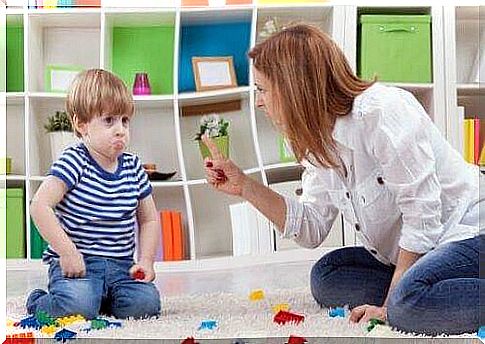
Conclusion: Talking to children in a sensible way
In summary, this theory of different parenting styles should be viewed in conjunction with a more general understanding of child behavior. That is, parenting styles can vary depending on the particular needs and circumstances of each family.
At the same time, however, it is clear that the democratic parenting style is very efficient. Because it leads to good communication between parents and children.
Ultimately, when we reasonably explain to our children our choices and why we adhere to certain norms, we are showing them that we are sensitive to their needs. This creates an emotive environment for communicating with them.
Consequently, this will help your children develop a realistic outlook on life and healthy, positive personalities.







